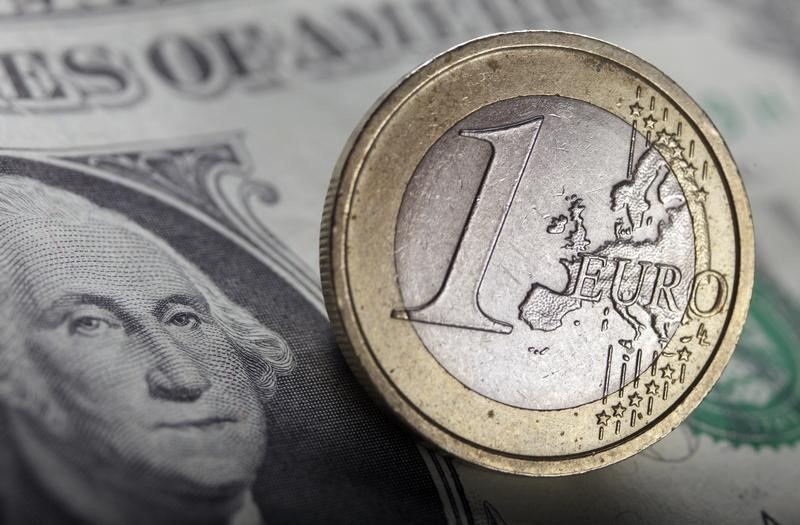Investing.com – The U.S. dollar edged higher in early European trade Friday, but was still on course for a hefty weekly drop as Federal Reserve Chair Jerome Powell signaled lower interest rates in coming months, while the euro slipped back from recent highs after the European Central Bank meeting.
At 04:15 ET (09:15 GMT), the Dollar Index, which tracks the greenback against a basket of six other currencies, traded just higher at 102.787, on course for a weekly loss of around 1%, which is set to be its steepest in nearly three months.
Dollar faces hefty weekly loss
The dollar is rebounding slightly Friday after being hit hard in the previous session in the wake of comments from , as the Fed chief completed his two-day testimony in front of Congress.
“We are waiting to become more confident that inflation is moving sustainably down to 2%,” Powell said in a hearing before the Senate Banking Committee. “When we do get that confidence, and we’re not far from it, it will be appropriate to begin to dial back the level of restriction so that we don’t drive the economy into recession.”
This has been taken by the markets that the Fed is preparing to move, probably in the summer, and thus it would take a very strong jobs number later this session to change sentiment.
Forecasts are for to have increased by just under 200,000 in February, down from January’s massive 353,000 gain, while are seen rising just 0.2% on the month, a slowing from the 0.6% gain the prior month.
“The payrolls will determine the direction of FX markets today. Following Powell’s testimony, we suspect markets will not be too reluctant to price in more cuts,” said analysts at ING, in a note.
Euro slips from near two-month high
In Europe, edged 0.1% lower to 1.0938, with the euro slipping back slightly after hitting an almost two-month high earlier Friday ahead of the latest reading of eurozone quarterly .
Data released Friday showed that rose in January by 1.0% from the previous month, more than the predicted 0.6% rise, and a significant improvement from the previous month’s revised 2% drop..
The left its benchmark rate steady at 4% and also laid the groundwork for a cut in June, similar to the scenes across the pond.
However, with the Fed funds rate at 5.25%-5.5%, traders see the Federal Reserve as having more room to cut aggressively.
“US payrolls will determine the direction for EUR/USD: expect some resistance at the key 1.1000 level should the dollar decline further today,” ING added.
traded 0.1% higher at 1.2820, with sterling benefiting from the dollar weakness, climbing over 1% this week and hitting a new 2024 high earlier in the session.
Yen sees strong weekly gains
In Asia, traded 0.2% lower to 147.76, with the yen up over 1.5% so far this week, its strongest percentage rise since December.
Traders are positioning for the Bank of Japan potentially ending negative interest rates in the near future, in direct contrast to the expected path of U.S. rates.
The yen has weakened for the most part of the past two years as the BOJ maintained its ultra-easy monetary policy stance while other major central banks aggressively hiked interest rates to tame inflation.
edged lower to 7.1922, while rose 0.3% to 0.6637 and rose 0.2% to 0.6182, with the Australian and New Zealand dollars 1.5% and 1.1% higher on the week respectively.
Read the full article here



